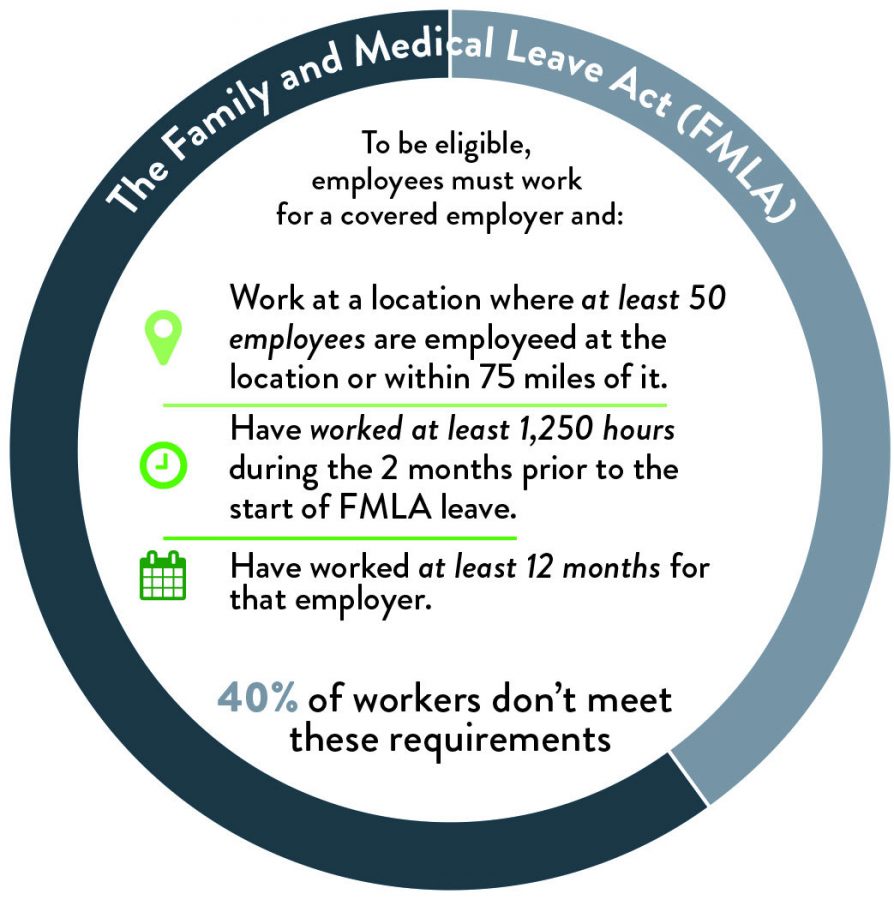‘Zero Weeks’ film tackles lack of paid family leave in US
NoPay
December 7, 2015
“Zero weeks,” a documentary still seeking funding through Kickstarter and set for a 2017 release, takes its title from the lack of paid family leave in the United States.
Director Ky Dickens said the problem is greater than paid parental leave and extends to caring for more than just children.
“A common misconception is that paid family leave only deals with new mothers,” Dickens said. “Paid leave is comprehensive of almost every American.”
Dickens added that paid family leave encompasses care for one’s own health, the health of an aging parent, or a sibling who is in dire need of care.
The current legislation dealing with family leave is the Family Medical Leave Act, which only covers a small percentage of workers, with many in the workforce falling through the cracks.
The FMLA provides 12 weeks of unpaid leave, but this leave is only available to workers whose workplaces employ 50 or more employees in a 75-mile radius, have worked for their company for at least 12 months and have accrued 1,250 worked hours within that year.
Dickens said when it comes to leave, the United States is significantly behind many nations. She added that the only other country that does not provide paid family leave is the Pacific island nation of Papua New Guinea. Countries such as Iran, that America prides itself in being more progressive than, are in fact ahead of the U.S. in this respect, she said.
“[Paid family leave] may seem like a luxury or benefit,” Dickens said. “It’s actually a necessity that only here is something we consider light [or unnecessary].”
Dickens said the film will work to avoid bias by taking into account stories from many sources, including mothers whose health has been affected by rapid reintroduction to the workforce, and people who cannot afford to take time off to help care for their parents.
She said small business owners also largely support paid family leave but cannot afford it. For that reason, Dickens said the filmmakers are talking to government officials such as Secretary of Labor Thomas Perez and Rep. Rosa DeLauro (D-CT), who co-authored The Family And Medical Insurance Leave Act, which proposes a system in which employers and employees pay a small percentage, 0.2 percent each, into a leave fund.
In an effort to bring the issue to the forefront of political thought and pass federal legislation, Dickens said the film is coordinating with grassroots groups in various states to help inform and inspire the 47 states that do not offer any sort of paid leave to pass legislation.
However, Dickens added that the funding for the film has been difficult to come by. As of press time, the film’s Kickstarter campaign ending Dec. 22 has raised $21,724 of its $75,000 goal.
Even with funding yet to be secured, Dickens said she has “inner peace” that the funding will come. She also said the production team would apply for grants in February for supplementary funding for “Zero Weeks.”
“I’m very confident the film will get the funding,” Dickens said. “Once people hear about it, they’re like, ‘Oh that has to get made.’”
Dickens said the White House Council on Women and Girls and the Department of Labor are supportive of “Zero Weeks,” and have been in contact with the filmmakers to help their efforts.
“We’re still strategizing every second of every day,” Dickens said. “It’s just a financial nightmare for indie films.”








